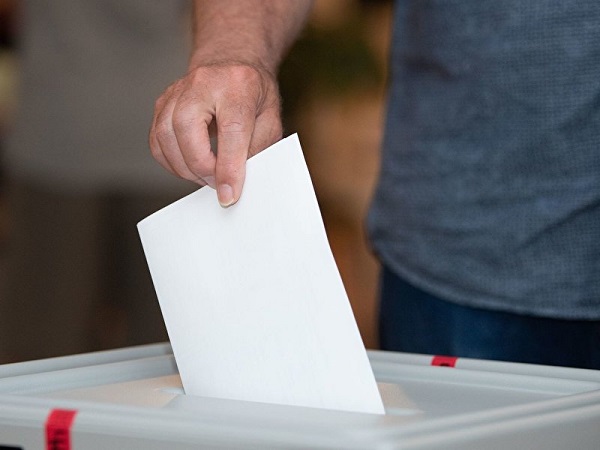By Lena Klimpel and Torsten Holtz l Monday, February 13, 2023
BERLIN – The centre-right Christian Democrats appeared to have gained an impressive victory in Sunday’s rerun of the Berlin city elections, getting 28.1% of the votes, a whopping 10% percentage points more than in the previous election in 2021, according to the latest projections.
The Greens appear to have maintained their voter share, with 18.4% to 18.5%, marginally ahead of the Social Democrats, who have 18.4% of the vote, a historically low result for the party that may cost the mayor her job.
The far-right Alternative for Germany had 9% to 9.1%, projections showed, keeping the party in the state parliament. However, the pro-business FDP recorded a significant loss, with 4.7%, falling below the 5% threshold required to obtain parliamentary representation.
If confirmed, the CDU would gain 48 to 50 seats, and the Green Party and SPD would each have 31 to 33 seats. The Left Party would receive 21 to 22 seats, the AfD 16.
The turnout was lower in Sunday’s rerun of the Berlin elections, according to initial polls, at 63.5% to 65%. This was lower than the original election in 2021, where it reached 75.4%. However, it is difficult to compare these numbers as a parliamentary election was held at the same time, and these usually attract more voters.
On Sunday, the conservatives’ party candidate, Kai Wegner greeted the result as a “phenomenal” success, saying, “Our mission is to form a stable government.” He said Berlin had chosen change. Berlin Mayor Franziska Giffey, a Social Democrat, acknowledged the CDU victory. Voters wanted “things to be different,” she said.
However, she said, her goal remains to stay in government. “If we have a chance to lead a government alliance under SPD leadership, we will also try to organize a stable political majority for it.” It is far from clear how the city’s government will be made up after the vote.
The Christian Democrats may not succeed in getting Wegner into the job of mayor, or even ensuring the party is part of the city government, despite its first win in more than two decades.
That’s because in German elections, the party that acquires the most votes doesn’t always end up running the government. Barring an absolute majority, which is rare and did not happen in Berlin, parties have to find partners in order to reach a majority of seats in parliament.
In Berlin the magic majority number to control the local government is 66 and there are numerous ways the different parties could pass this threshold. The current government, led by Giffey and her partners the Greens and the far-left Die Linke, might end up keeping their jobs.
However, if the Greens remain ahead of the SPD then Giffey would lose her job as mayor. So who would run the city, which is facing high rents, a housing shortage, transportation problems and an influx of refugees, remains to be seen.
The Greens, in television interviews on Sunday night, repeatedly stated that they prefer keeping the current coalition. So if they beat the SPD for second place and come in second behind the CDU, and keep the current coalition, the new mayor would Bettina Jarasch, the Green’s mayoral candidate.
The Greens could also potentially form a coalition with the CDU. However, the conservatives created some bad blood between them during the election campaign, and Wegner faces an uphill battle to smooth things over with the environmental party.
None of this will be decided on Sunday. Wegner, who gained the most votes, will have the first chance to form a government and has said he is will speak with both the SPD and Greens.
The new elections were held for Berlin’s House of Representatives and the representative bodies of the city’s 12 districts, after the Berlin Constitutional Court had declared the previous election invalid because of “serious systemic flaws.”
In the 2021 vote, many polling stations had insufficient or incorrect ballot papers and people had to queue for hours. Voting dragged on well into the evening and continued in many places even after the polling stations were scheduled to close and the first forecasts were published.
That was partly because the elections on September 26, 2021 took place on a crowded calendar, as the federal election, a referendum on the expropriation of large housing companies and the Berlin Marathon all took place on that same date.
